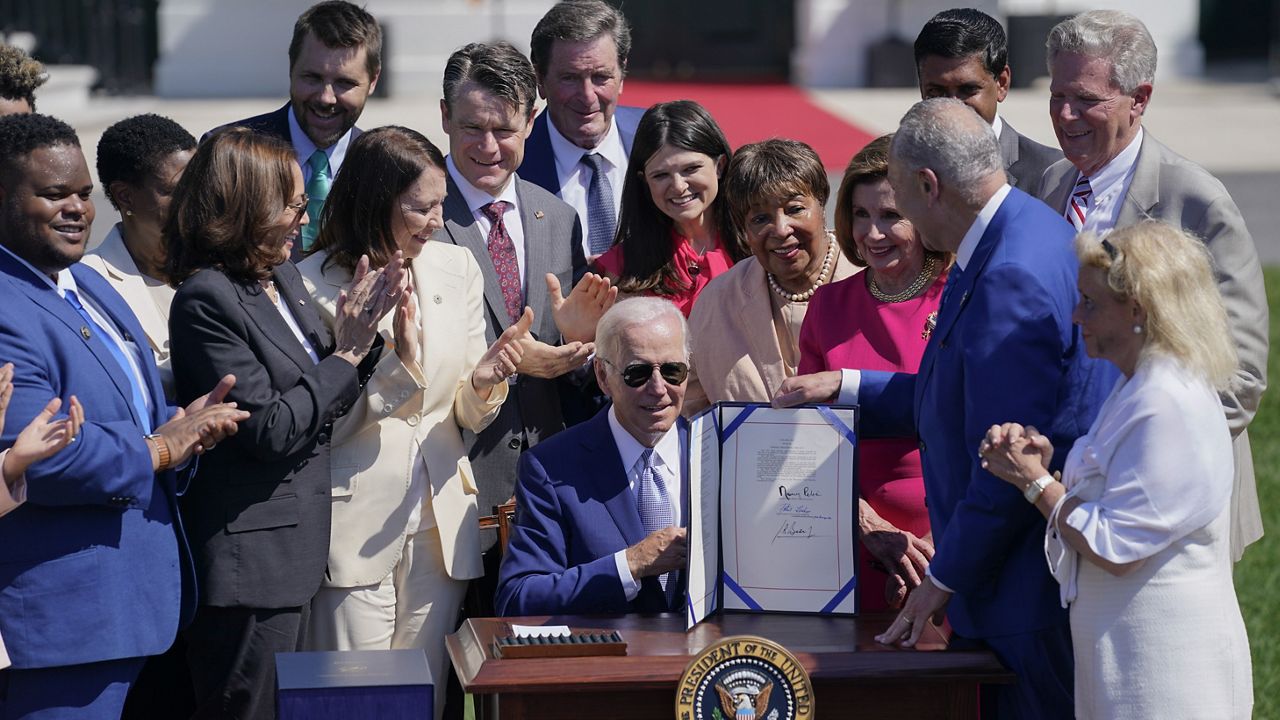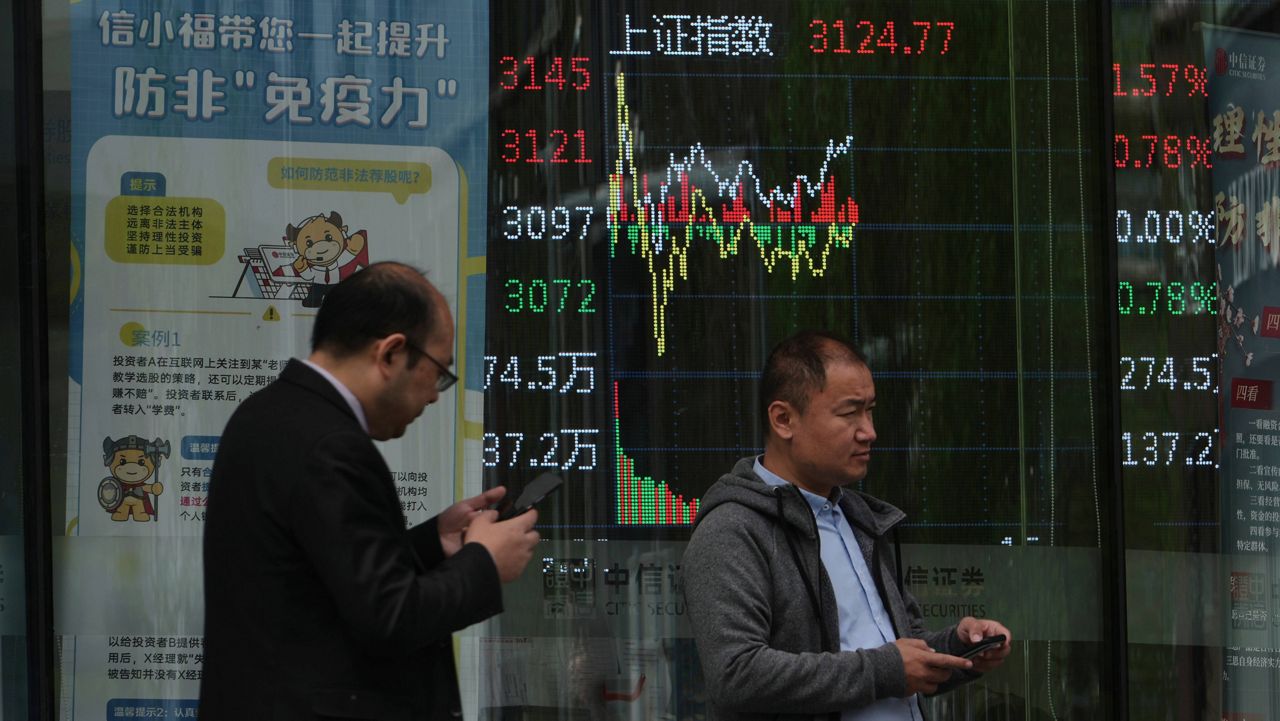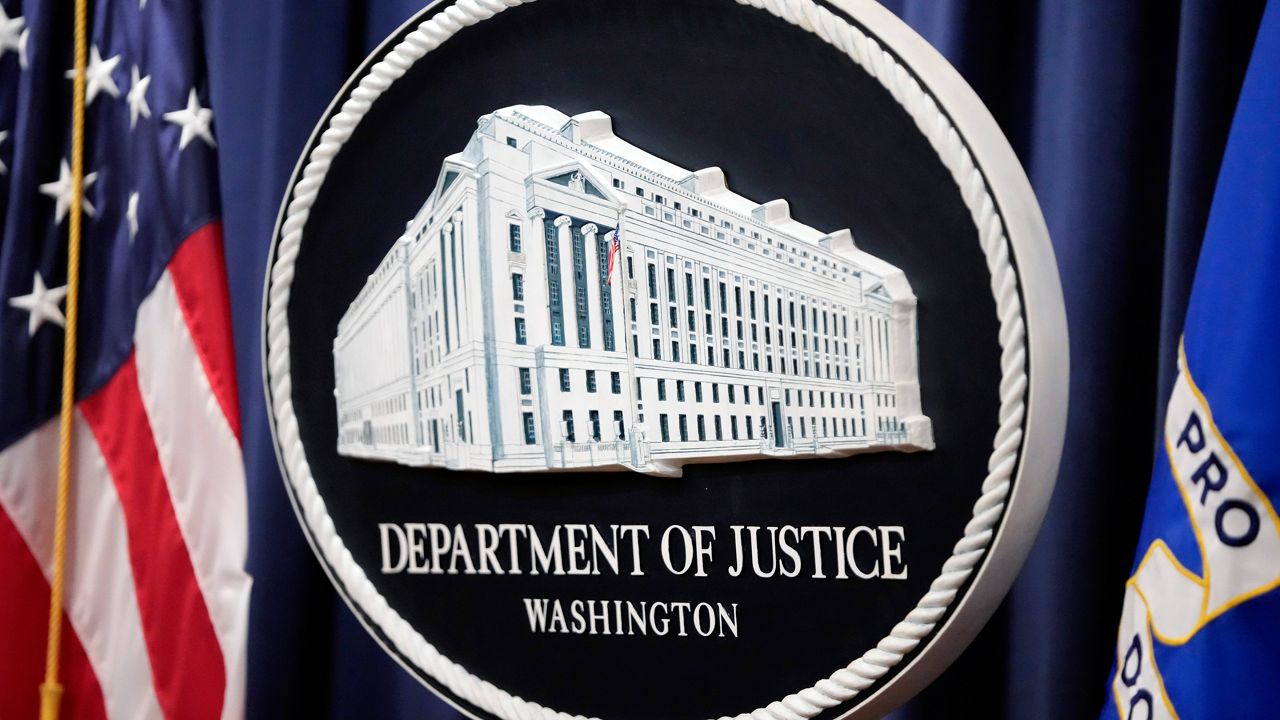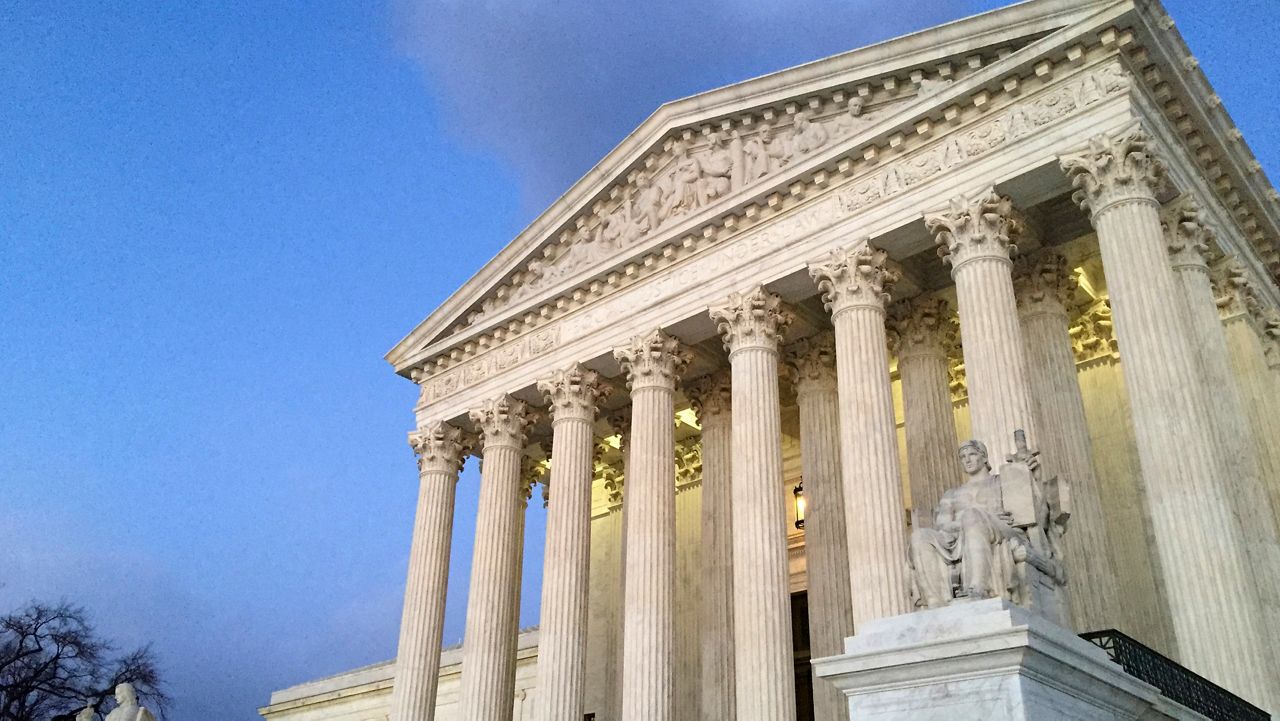The Biden-Harris administration on Wednesday touted the progress made under two major pieces of legislation signed by President Joe Biden as the second anniversaries of the CHIPS and Science Act and the Inflation Reduction Act approach.
What You Need To Know
- The Biden-Harris administration on Wednesday touted the progress made under two major pieces of legislation signed by President Joe Biden as the second anniversaries of the CHIPS and Science Act and the Inflation Reduction Act approach
- The CHIPS Act, signed into law on Aug. 9, 2022, included $39 billion in incentives for domestic semiconductor facilities, $11 billion for semiconductor research and workforce development, and $2 billion for Defense Department-related microelectronics, among other initiatives
- The Inflation Reduction Act, which Biden signed on Aug. 16, 2022, was the government’s largest ever climate-related investment, creating tax credits to incentivize clean energy deployment and manufacturing and spur electric vehicle manufacturing and purchasing
- The IRA also aimed to lower health care costs by reducing insurance premiums, capping insulin costs at $35 and making vaccines free for Medicare beneficiaries, and allowing Medicare to negotiate lower prices for certain prescription drugs
The CHIPS Act, signed into law on Aug. 9, 2022, included $39 billion in incentives for domestic semiconductor facilities, $11 billion for semiconductor research and workforce development, and $2 billion for Defense Department-related microelectronics, among other initiatives.
CHIPS stands for “Creating Helpful Incentives to Produce Semiconductors.”
The Inflation Reduction Act, which Biden signed on Aug. 16, 2022, was the government’s largest ever climate-related investment, creating tax credits to incentivize clean energy deployment and manufacturing and spur electric vehicle manufacturing and purchasing.
The IRA also aimed to lower health care costs by reducing insurance premiums, capping insulin costs at $35 and making vaccines free for Medicare beneficiaries, and allowing Medicare to negotiate lower prices for certain prescription drugs.
To help pay for itself, the legislation included provisions to crack down on tax evasion by the wealthy and large corporations and required corporations to pay at least 15% in taxes each year.
Together, the laws have helped yield $900 billion in major private sector clean energy and manufacturing investments since Biden took office, the White House said.
Nearly $400 billion of those investments have been in semiconductors and electronics, a result of the CHIPS Act. Officials said the U.S. is on track for a 28% global share of leading-edge logic chip production by 2032, up for 0% when the law was passed.
“As President Biden often says, America invented semiconductors, but over time we went from producing 40% of the world’s chips to less than 10%,” White House Deputy Chief of Staff Natalie Quillian told reporters. “The CHIPS and Science Act aimed to change that, and that's exactly what we’re doing.
“These investments mean we will no longer be as reliant on other nations for our semiconductor supply chains that power everything from appliances to EVs to national security and defense systems,” she added.
The law has directly created more than 115,000 construction and manufacturing jobs, officials said. Workforce hubs aimed at improving semiconductor manufacturing pipelines have been launched in New York, Arizona and Ohio.
Meanwhile, there has been $265 billion invested in clean energy since the Inflation Reduction Act was passed, including over $115 billion in the electric vehicle supply chain, the White House said.
More than 313,000 new clean energy jobs have been created since Biden signed the bill into law, according to Climate Power, a left-leaning environmental advocacy group.
And Americans are taking advantage of nearly two dozen new climate-focused tax incentives. For example, a Treasury Department analysis released Wednesday found that 3.4 million families claimed more than $8 billion in residential clean energy and home energy efficiency tax credits in 2023, the first year the full adjustments were in effect.
Meanwhile, the country’s power grid, fueled largely by clean energy, is expanding. White House national climate adviser Ali Zaidi said the U.S. is poised to add 55% more capacity in 2024 than it had last year — 96% of the new capacity coming from clean energy.
“That doesn't happen by accident,” Zaidi said. “It happens because of the investment and the incentives that have been laid down by President Biden and Vice President Harris.”
The IRA is saving millions of Americans an average of $800 per year on their health insurance premiums while driving the number of uninsured people to historic lows, the White House said. A record 21 million people signed up for the Affordable Care Act this year — a 75% increase since Biden took office.
The Center for Medicare and Medicaid Services will announce Sept. 1 the maximum prices for seniors to pay for drugs negotiated as a result of the IRA.
And next year, a provision that caps the out-of-pocket prescription drugs at $2,000 a year is expected to save nearly 19 million seniors an average of $400 per year, officials said.
“Together, these actions are monumental,” White House domestic policy adviser Neera Tanden said. “President Biden and Vice President Harris are committed to building on this progress. They have taken on really tough fights with the pharmaceutical companies, and they are delivering.”
In addition to collecting more tax revenue from corporations, provisions in the IRA also have led to the recovery of $1 billion from millionaires who were delinquent on their taxes, cut down on phone wait times at the IRS and saved taxpayers money in tax preparation fees by allowing them to file their returns directly with the IRS, officials said.
Despite the accomplishments, it’s not clear how much the bills are resonating with voters in an election year.
For example, the Yale Program on Climate Change Communication reported in June that about four in 10 registered voters surveyed said they have heard “nothing at all” about the Inflation Reduction Act.
“I think that people don't follow the ins and outs of Washington very much,” a senior administration official said. “I think they want to know what's going on in their own communities and their own lives. And from our perspective, I think the benefits of the act are now really being felt by people at the household level, at the community level, so I think those numbers are likely to grow substantially.”








